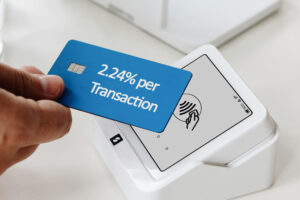Americans across all income levels are falling behind on their credit card payments — and the numbers are climbing fast.
According to recent data from the Federal Reserve Bank of St. Louis, credit card delinquencies are on the rise in 2025, reaching levels not seen since the 2008 financial crisis. Whether you’re managing student loans, juggling rising rent, or just trying to keep up with everyday expenses, this shift in consumer debt trends has real consequences for everyone.
In this post, we’ll explain why delinquencies are rising, what it means for your credit and financial health, and what steps you can take to protect yourself.
What Are Credit Card Delinquencies?
A credit card delinquency happens when you miss a payment by 30 days or more. After 60 or 90 days, the account may be reported as seriously delinquent, damaging your credit score and possibly being sent to collections.
What’s Happening in 2025?
In the first half of 2025, delinquencies have increased across all income groups — not just low-income households. Here’s what’s driving the surge:
1. High Interest Rates
With federal rates still elevated, the average credit card APR in 2025 is over 21%. That makes it much harder for people to pay down balances, especially if they’re only making minimum payments.
2. Inflation and Cost of Living
Prices for essentials like groceries, rent, insurance, and utilities remain high. Many people are turning to credit cards just to cover basic expenses, digging deeper into debt month after month.
3. Shrinking Savings
Pandemic-era savings are gone for many households. Without an emergency fund, a single unexpected bill — car repair, medical expense, job loss — can push people into delinquency.
4. Stalled Wage Growth
While employment remains strong, wages have not kept up with inflation, leaving people with less purchasing power and fewer resources to pay down debt.
Why This Matters to You
Even if you’re managing your credit cards well right now, the ripple effects of rising delinquencies can still affect you:
- Lenders tighten credit requirements
As more borrowers default, banks become more cautious. You may find it harder to get approved for new cards or loans — especially if your score is under 700. - Credit limits may be reduced
Lenders sometimes lower limits on existing accounts during economic downturns, which increases your credit utilization ratio and can drop your score. - Your credit score could take a hit
A single 30-day late payment can knock 50–100 points off your FICO score — even if you’ve had a strong payment history.
How to Protect Yourself from Falling Behind
1. Reassess Your Budget
Take a fresh look at your income and expenses. Identify areas to cut — even temporarily — so you can free up cash to cover minimum payments. Apps like Mint, Rocket Money, or YNAB can help track and trim spending.
2. Automate Minimum Payments
If you can’t pay in full, set up automatic payments for at least the minimum due. This prevents missed payments that hurt your credit.
3. Contact Your Credit Card Issuer
Many issuers have hardship programs that can:
- Lower your interest rate
- Temporarily reduce or pause payments
- Waive late fees
Call and ask — it’s better to communicate before you miss a payment.
4. Consider a Balance Transfer or Debt Consolidation Loan
If your credit is still in decent shape (680+), you may qualify for:
- A 0% APR balance transfer card
- A personal loan with lower interest to consolidate multiple cards into one monthly payment
Make sure to read the fine print and calculate whether the fees are worth the savings.
5. Explore Credit Counseling
Nonprofit credit counseling agencies can help you create a debt management plan (DMP). They may even negotiate with creditors on your behalf. Look for a certified agency through NFCC.org.
What to Watch for in the Coming Months
- More credit limit reductions
- Higher minimum payments if interest continues rising
- More aggressive debt collection tactics from lenders
Keeping tabs on your credit report (via AnnualCreditReport.com) and credit score (via Credit Karma or your bank) can help you spot problems early.
Conclusion
Credit card delinquencies are rising — but you don’t have to be part of the trend. The sooner you act, the more options you have. Whether it’s reworking your budget, negotiating with your lender, or getting outside help, small steps today can protect your finances tomorrow.




